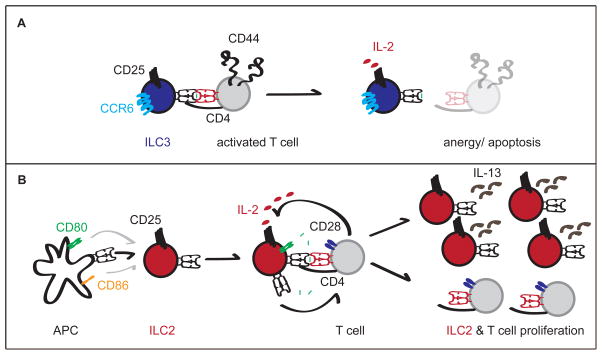Figure 2.
A. NKp46−CCR6+ ILC3 engage CD44hiCD62Llo activated T cells in an antigen-dependent manner via MHC II. In the absence of costimulatory molecules expression by ILC3, T cells become anergic or apoptotic, which is enhanced by sequestration of IL-2 by ILC3. B. ILC2 express MHC II transcript, but also trogocytose it perhaps as well as costimulatory molecules, most likely from professional APC. In the presence of exogenous peptides or trogocytosed MHC II bound to antigen, ILC2 interact with CD4+ T cells and can induce their proliferation in vitro. CD4+ T cell-produced IL-2 may similarly lead to increased ILC2 proliferation and IL-13 production in vitro and in vivo.

